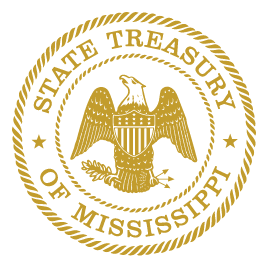Newsroom
Column: The Debt Dilemma
Debt is a tricky conversation. In the form of a mortgage, debt enables more people to work toward owning their own home. In the form of a small business loan, it gives job creators the opportunity to expand. But debt as the result of a high-interest credit card or a $30,000+ student loan can mean years of financial instability.
Today, 47 percent of Americans are living with credit card debt, with the average amount being more than $4,500 in Mississippi. This kind of debt can be expensive to carry and often tempts us to overspend. Budgeting website TheBalance.com shares a few good tips to avoid getting in credit card trouble:
- Set a personal spending limit on your credit card.
- Use personal finance software, like Mint or Quicken, to track spending across multiple cards.
- Pay your balance in full each month. If you find that you are unable to pay the balance, assess your purchasing to see if spending cuts are feasible. Then, pay off as much as possible each month until your balance returns to zero. Just paying the minimum can make it difficult to actually dig out of debt and can result in a false sense of security.
In total, there is about $1 trillion worth of credit card debt in America. It’s one of the largest buckets of personal debt we carry, only surpassed by home mortgages and student loans.
It wasn’t until 2010 that student loan debt rose above credit card debt, but it shows no signs of slowing down. Between 2008 and 2018, student loan debt increased 58.5 percent with the average Mississippi college student graduating with more than $30,000 of it. The impact of this debt is expansive, often delaying major life milestones such as getting married, buying a home, and starting a family.
Through the Mississippi Treasury, however, families can pull together to begin saving for a child’s education early and mitigate (or eliminate) the impact of student loan debt. More specifically, we offer two 529 college savings tools. One will allow you to lock-in today’s tuition rates and prepay college, while the other will enable you to save money for educational expenses in a tax-advantaged account.
These plans aren’t only for parents looking to save for a child’s tuition. Grandparents and even family friends can open and contribute to accounts, making it a useful consideration in estate planning and wealth management. If this is something you may be interested in, please call my office at 601-359-3600, and we’d be happy to share more information.
As we continue our outreach during Financial Education Month this April, I encourage you to visit Treasury.MS.gov/FinancialEducation for resources. There, you can also find tools to help teach kids fiscal responsibility within your home or classroom.
Debt can be tricky, so I encourage you to take a look at your own. What is helping you grow? And what is holding you back? Use this to prioritize your payments and achieve greater financial independence in the years to come.

